
Blur are an English rock band formed in London in 1988. The band consists of singer Damon Albarn, guitarist Graham Coxon, bass guitarist Alex James and drummer Dave Rowntree. Their debut album, Leisure (1991), incorporated the sounds of Madchester and shoegaze. Following a stylistic change influenced by English guitar pop groups such as the Kinks, the Beatles and XTC, Blur released the albums Modern Life Is Rubbish (1993), Parklife (1994) and The Great Escape (1995). As a result, the band helped to popularise the Britpop genre and achieved mass popularity in the UK, aided by a widely publicised chart battle with rival band Oasis in 1995 dubbed "The Battle of Britpop".
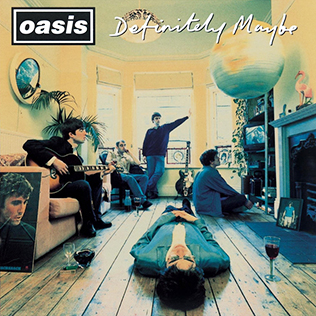
Definitely Maybe is the debut studio album by the English rock band Oasis, released on 29 August 1994 by Creation Records. The album features Noel Gallagher on lead guitar, backing vocals and as chief songwriter, Liam Gallagher on lead vocals, Paul "Bonehead" Arthurs on rhythm guitar, Paul "Guigsy" McGuigan on bass guitar and Tony McCarroll on drums.

The Verve were an English rock band formed in Wigan, Greater Manchester, in 1990 by lead vocalist Richard Ashcroft, guitarist Nick McCabe, bass guitarist Simon Jones and drummer Peter Salisbury. Guitarist and keyboard player Simon Tong later became a member in their first reunion only.

Oasis are an English rock band formed in Manchester in 1991. The group initially consisted of Liam Gallagher, Paul "Bonehead" Arthurs (guitar), Paul "Guigsy" McGuigan and Tony McCarroll (drums), with Liam asking his older brother Noel Gallagher to join as a fifth member a few months later to finalise their formation. Noel became the de facto leader of the group and took over the songwriting duties for the band's first four albums. They are characterised as one of the defining and most globally successful groups of the Britpop genre.

Heathen Chemistry is the fifth studio album by English rock band Oasis. It was released on 1 July 2002 by Big Brother Recordings. It is the first Oasis studio album recorded with guitarist Gem Archer and bassist Andy Bell, who both joined the band after work on previous album Standing on the Shoulder of Giants had been completed. It is the last album to feature longtime drummer, Alan White, who left in early 2004, with Noel Gallagher citing White's lack of commitment to the band as the reason for leaving.

William John Paul Gallagher is an English singer and songwriter. He is the lead singer of the rock band Oasis, which he co-founded in 1991. He fronted the rock band Beady Eye from 2010 to 2014, before starting a successful solo career in 2017.

Noel Thomas David Gallagher is an English musician, singer and songwriter. Gallagher is the primary songwriter, lead guitarist and a co-lead vocalist of the rock band Oasis. After leaving Oasis, he formed Noel Gallagher's High Flying Birds. Gallagher is one of the most successful songwriters in British music history, as the writer of eight UK number-one singles and co-writer of a further number one, as well as the sole or primary writer of ten UK number-one studio albums. He is widely considered to be one of the most influential songwriters in the history of British rock music, cited by numerous major subsequent artists as an influence.

Bis are a Scottish indie pop band composed of Steven Clark, John Clark, and Amanda MacKinnon, formed in 1994. The band's name, rhyming with 'this', derives from "black iron skyline", a lyric from the song "Twilight of a Champion" by The The.
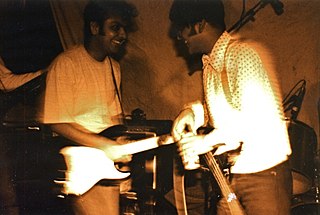
Cornershop are an English indie rock band formed in Leicester, in 1991. The group are best known for their single "Brimful of Asha" from their third album When I Was Born for the 7th Time, whose remixed version topped the UK singles chart in 1998. They were formed by Tjinder Singh, his brother Avtar Singh, David Chambers (drums), and Ben Ayres, the first three having previously been members of General Havoc, who released one single in 1991. The band name originated from a stereotype referring to British Asians often owning corner shops. Their music is a fusion of Indian music, indie rock, alternative and electronic dance music.

"Brimful of Asha" is a song by English alternative rock band Cornershop from their third album, When I Was Born for the 7th Time (1997). The recording, released by Wiiija, originally reached number 60 on the UK Singles Chart in 1997. After a remixed version by Norman Cook became a radio and critical success, the song was re-released and reached number one on the UK chart and number 16 on the US Billboard Modern Rock Tracks chart. The lyric is a tribute to Asha Bhosle. Its music video was directed by Phil Harder.

Arctic Monkeys are an English rock band formed in Sheffield in 2002. The group consists of lead singer Alex Turner, drummer Matt Helders, guitarist Jamie Cook and bassist Nick O'Malley; bassist and co-founder Andy Nicholson left the band in 2006.
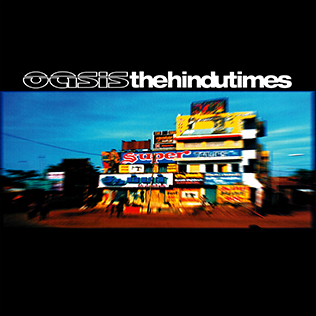
"The Hindu Times" is a song by English rock band Oasis. It was written by the band's lead guitarist Noel Gallagher, and was released as the lead single from their fifth studio album, Heathen Chemistry, on 15 April 2002. On the album, it segues directly into the next track, "Force of Nature."

"Champagne Supernova" is a song by English rock band Oasis, written by Noel Gallagher. It is the closing track on the band's second studio album, (What's the Story) Morning Glory? (1995), and was released as the sixth and final single from the album in Australia and New Zealand on 13 May 1996 by Helter Skelter. Paul Weller appears as a guest guitarist and backing vocalist on the track. A music video for the song, directed by Nigel Dick, was released in 1996. The single was not released in the United Kingdom.

Drawn from Memory is the second album by English rock band Embrace, released on 27 March 2000 by Mobetta, Hut, and Virgin Records. Following the release of their debut studio album The Good Will Out (1998), touring keyboardist Mickey Dale became an official member. Frontman Danny McNamara began suffering from writer's block, leaving guitarist Richard McNamara to handle the writing. Sessions were done at Batsford Park Manor in Gloucestershire, Olympic Studios in London, and Soundworks Studios in Leeds. Tristin Norwell and the band producer the entire album, bar "You're Not Alone", which was produced by Hugo Nicolson. Songs on the album centred around the arrangements and the interplay between instruments, instead of being melody-driven.

When I Was Born for the 7th Time is the third studio album by the English indie rock band Cornershop, released on 8 September 1997 by Wiiija. The album received high acclaim from music critics and features the international hit single "Brimful of Asha".

Comet Gain are a British indie pop band, formed by singer-songwriter and guitarist David Christian in 1992, with musical influences including post-punk and northern soul. Pitchfork called them "one of the most underrated contemporary indie bands in the UK".
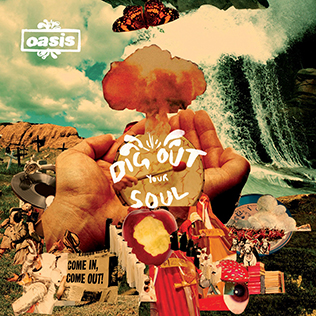
Dig Out Your Soul is the seventh studio album by English rock band Oasis, and the last before their 15-year breakup from August 2009 to August 2024. It was released on 6 October 2008 by Big Brother Recordings. The album was recorded between August and December 2007 at Abbey Road Studios in London, and mixed in January and March 2008 at The Village Recorder in Los Angeles. Production was handled by Dave Sardy who had previously produced much of the group's sixth studio album, Don't Believe the Truth (2005). Lead guitarist Noel Gallagher wrote a majority of the songs, while three were written by Liam Gallagher as well as one contribution each from Gem Archer and Andy Bell.

Judy Sucks a Lemon for Breakfast is a 2009 studio album by British band Cornershop. It was their first album in seven years following 2002's Handcream for a Generation. The band were dropped by Beggars Banquet Records after disagreements about the promotion of their previous album, and Tjinder Singh explained the reasons for the seven-year gap before this album: "We needed to take a break from doing music. I didn't stop working but the climate didn't seem very fertile for what we were doing. It was really a case of waiting for a time when it was more receptive." The band also made a film in that time, which has yet to be released, and set up their own Ample Play record label. The band released the album independently through their website and in local shops.
Blood Sausage were an indie rock band from Brighton, England, containing members of Huggy Bear.
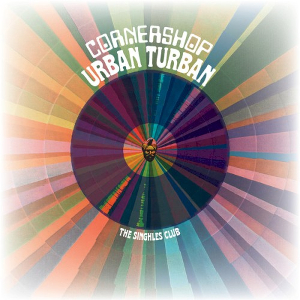
Urban Turban is a 2012 studio album by the British band Cornershop. It follows their 2011 album Cornershop and the Double 'O' Groove Of. Like their previous effort, the album consists mostly of collaborations; however, unlike its predecessor, which consisted solely of music with vocalist Bubbley Kaur, Urban Turban includes a variety of collaborators, including SoKo and Amar. The album originated as a project called The Singhles Club, in which the band sent subscribers a new song on a monthly basis via e-mail along with unique cover art. All six tracks from this project appear on the album.





















